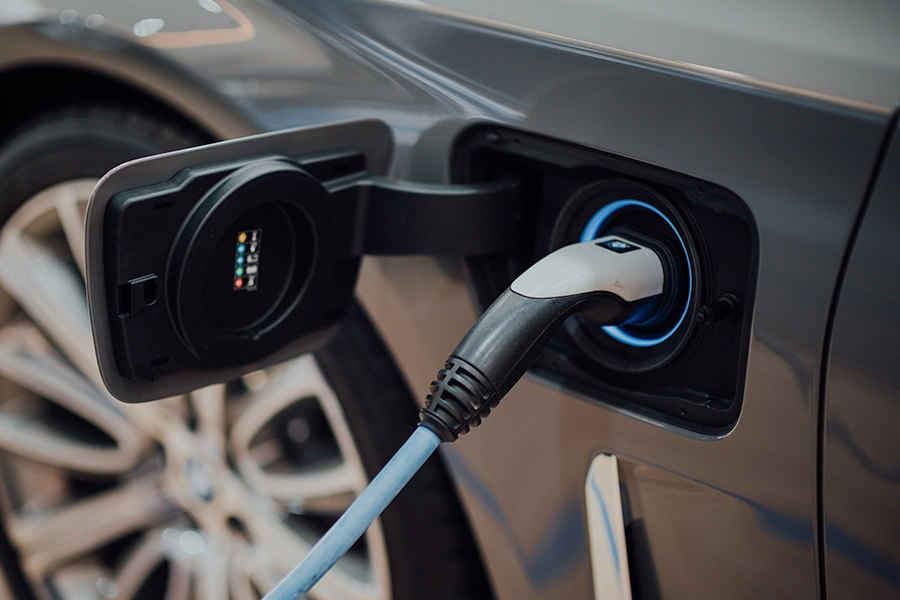Company cars are a great way to extract money from your company or to offer a great benefit package to your employees. Most petrol and diesel cars have a high tax cost associated with them, which can put people off. However, electric cars have such low benefit-in-kind tax rates that it makes it a win/win for the company and the employee!
Here are some considerations to make before looking into purchasing an electric car and the reasons why this could be one of your best buys of 2024!
Benefit in Kind (BiK) Tax
If the company provides an electric car to an employee or a director and there is any personal use of the car, there are tax implications for both the company and the employee.
The BiK tax rates range from 2% for zero and low-emission vehicles all the way up to 37% for cars that create more pollution. The BiK rate for electric cars is currently fixed at 2% until April 2025. After this, it will increase by 1% every year until 2028. When you compare this to the rate for petrol and diesel cars, the savings are evident.
What this BiK rate means is that you take the list price of the electric car, multiply this by 2%, and that is the amount to be treated as extra income for the employee to pay income tax on. The actual extra tax you pay will be at 20%/40%/45% depending on your salary, and the tax is usually taken through PAYE on your payslip by adjusting your tax code. If you are a director, this is often taken care of when you do your self-assessment tax return.
The company also pays an extra type of National Insurance on the benefit value, which is called class 1A NI. This is currently 13.8% and is paid over when the company completes the P11D which is an annual form to HMRC to declare all of the benefits provided to employees during the tax year.
Capital Allowances
If you buy a brand-new electric car through your limited company, you can claim a First Year Allowance of 100% of the cost of the car. This is then offset against your taxable profits and can be written off in full in the year of purchase.
This can provide a massive saving in corporation tax in the year of purchase. However, bear in mind that when the company sells the car, there will be tax to pay on the price it’s sold for.
This First Year Allowance does not apply to second-hand electric cars, and it’s worth noting that VAT cannot be claimed on the purchase of cars.
Also, if the car is leased and not owed by the company, no capital allowances can be claimed. In this case, the monthly lease payments are deducted from the company’s profit and the tax relief is more gradual as it is over the term of the lease. Also, half of the VAT can be claimed on each lease payment.
Salary Sacrifice Schemes
Getting an electric car through a salary sacrifice scheme is a brilliant way to take advantage of savings and can result in tax savings for both the employer and the employee.
Electric car salary sacrifice allows you to save on the cost of any electric car so can be an attractive solution. At no extra cost to the employer, the employee can opt to ‘sacrifice’ a portion of their monthly salary (pre-tax) to fund a vehicle’s lease payments.
This provides a tax advantage to the employee due to savings on PAYE and National Insurance as their salary is now “lower” and there are also National Insurance savings for the employer so it’s a great solution for all involved.
It is important to consider your options and speak to a HR advisor and accountant before putting a scheme in place, as employment contracts may need amending and those on lower incomes may not be eligible to join the scheme.
Fuel Costs
Electric vehicles generally have lower running costs than petrol and diesel vehicles so companies can benefit from reduced fuel and maintenance expenses. Refilling a petrol or diesel car costs on average between 19 – 21p per mile, while recharging your electric car can cost as little as 3p per mile for home charging, around 14p per mile on lamppost chargers and around 18p per mile for rapid public charging.
As well as there being financial benefits, there are obviously great sustainability advantages of owning an electric car and that warm fuzzy feeling of not polluting the planet when you’re driving!
If you have any questions about buying an electric car through your limited company, please contact us at info@future-cloud.co.uk!


